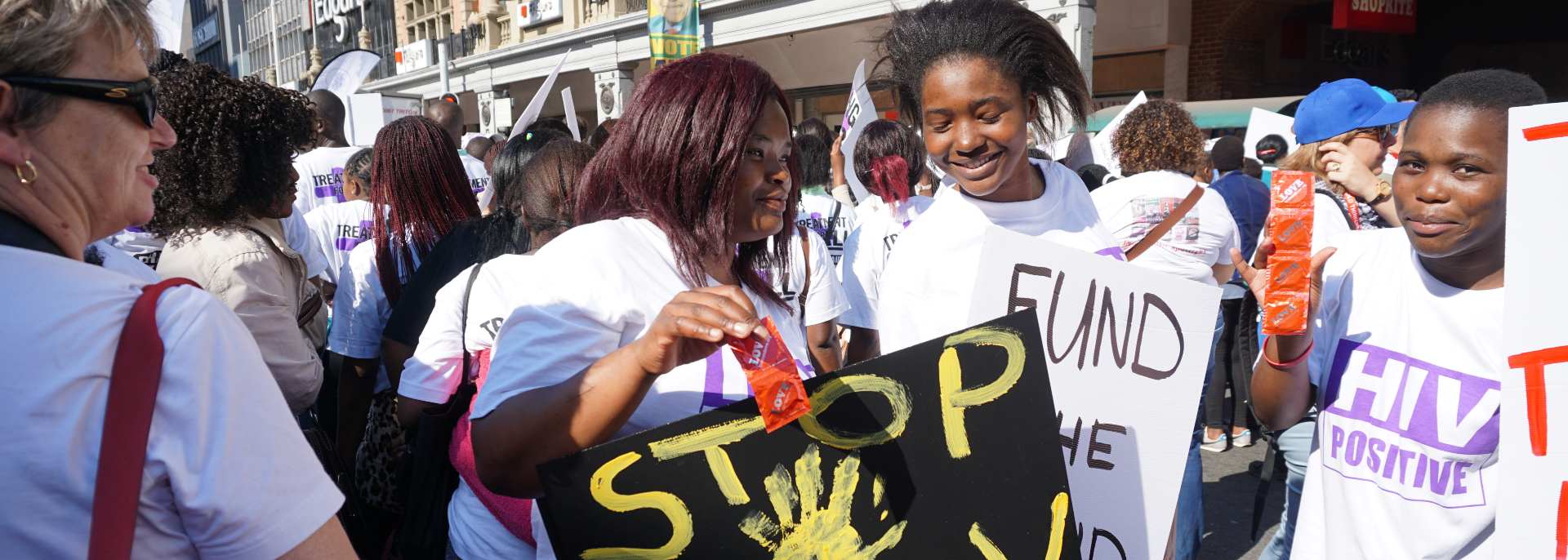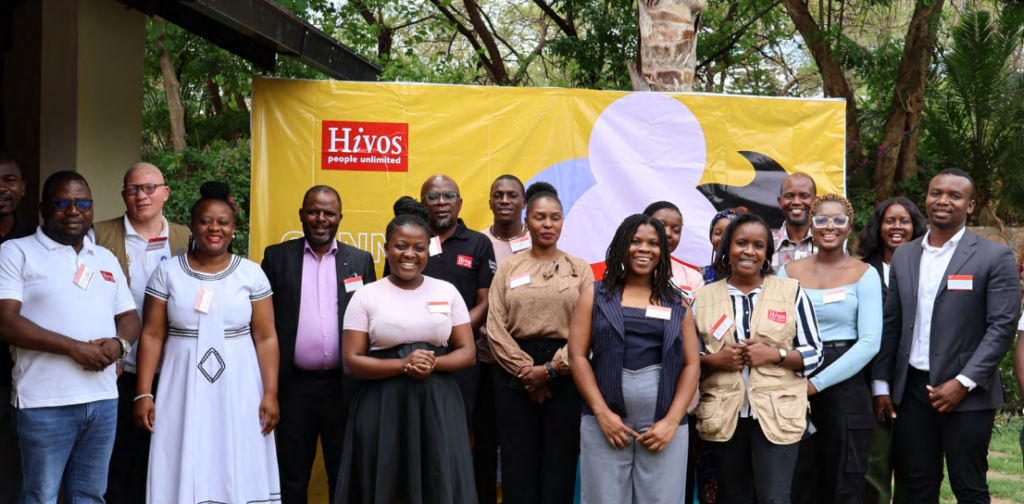Hivos welcomes the decision of US President Joe Biden to rescind the Mexico City Policy, commonly known as the Global Gag Rule (GGR). It banned international NGOs from accessing USD 8.8 billion in aid meant for the health sector, upon which millions of women globally depend for reproductive health goods and services. While this repeal is a win for women’s rights, the impact and repercussions of the policy will still be felt for a long time to come.
The GGR was first instituted in 1984 by US President Ronald Reagan during the UN International Conference on Population and Development in Mexico City. It required NGOs that receive funding from the US government to not perform, advertise or promote safe abortions, regardless of their other sources of funds.
When Donald Trump took office in 2017, he not only reinstated the rule, but expanded it to defund all global health care organizations involved in family planning and access to safe abortion. For women’s rights organizations receiving funding from USAID, this meant an end to funding not only for healthcare services related to family planning, sexual reproductive health and rights, but also malaria and AIDS. All they needed to do to lose their US funding was merely support or suggest a termination of pregnancy.
The problem is that abortion rates increased when the policy was in effect.
Global response to Trump’s expanded GGR
Global initiatives promoting women’s rights such as SheDecides were quick to step in to fill the funding gap left by the US government. Founded by Liliane Ploumen, former Minister of Foreign Trade and Development in the Netherlands, SheDecides has since become both a global movement and a rallying cry to action. In total, USD 200 million has been pledged to organizations affected by the rule. This initiative demonstrated solidarity, but it wasn’t enough to cover all the funding gaps created by the GGR.
Increased number of abortions
Hivos East Africa’s Regional Director Mendi Njonjo wrote in an opinion piece that this policy doesn’t actually decrease abortions. “The problem […] is that […] abortion rates increased when the policy was in effect. This is largely because organizations that provide reproductive health services tend to provide the entire slew of reproductive health services, including information and in some cases, access to abortion. Where they are defunded, they can no longer provide information on contraception, which leads to an increase in unwanted pregnancies and safe abortions,” she said.
Direct impact in countries with low-income populations
Four years down the line since Trump’s GGR expansion, women and girl’s health has been threatened in more than 60 African countries, contributing to at least 6.5 million unintended pregnancies, 2.1 million unsafe abortions, and 21,700 maternal deaths. “At the center of concern for African feminists and women’s rights activists and advocates is the devastating effects that the Global Gag Rule has on the lives and health of women and girls in the Pan African region,” says Halima Abba Ali Zaid, Sexual and Reproductive Health and Rights Lead at FEMNET, the African Women’s Development and Communication Network. “The expansion of the Global Gag Rule led to ceasing the introduction of new, effective contraceptive options and provision of family planning services which has hindered many women and girls from all diversities in Africa from accessing the SRHR commodities.”
A growing body of research has been highly critical of the impact of the GGR. The International Women’s Health Coalition’s report, ‘Crisis in Care. Year Two Impact of Trump’s Global Gag Rule’, details the devastating effect of the rule across populations in Kenya, Nepal, Nigeria and South Africa. Population Action International’s report, ‘So Far, So Bad’, paints a similarly dismal picture of the GGR, which forced organizations such as MSI in Uganda to close 27 mobile health teams after refusing to accept the policy. Reproductive Health Uganda lost 30 per cent of its annual budget, seriously hampering women’s sexual and reproductive health in refugee camps.
2020: crackdown on a woman’s right to her body
But the effect of the GGR goes beyond funding cuts; it has allowed greater leeway for a crackdown on women’s right to bodily autonomy. It has also emboldened conservative, religious, right wing groups and authoritarian regimes that promote control over women’s bodies. Not just in the US, but also in countries like as Poland, where on October 20, 2020, the government announced an almost complete ban on abortion. In January 2021, the Honduran Congress approved a bill that will make it virtually impossible to ever legalize abortion in the country.
Also on October 20, 2020, 35 countries – including Poland – signed the Geneva Consensus Declaration. This initiative from former US Secretary of State Mike Pompeo claims to want better health care for women. Instead, it aims to prevent women from accessing abortions and promotes the traditional family unit.
First 100 days
As the world watches what the first 100 days of President Biden’s term will bring, we encourage the new administration to act swiftly in reaffirming US support for women’s rights and declaring them to be a human right. This, together with rescinding the GGR, will go a long way in saving the lives of millions of women in dire need of critical reproductive health care services, including a safe abortion. It will also end four years of stigma and self-censorship for those engaged in the reproductive health rights debate.
Hivos additionally urges the US Congress to work with the new administration in passing the Global Health, Empowerment, and Rights Act (Global HER Act) to show their support for ending this draconian policy, thus protecting the health rights of women and young girls around the world. As Halima points out, “The multiple identities and experiences of African women and girls, such as their low income status, lack of education, sexual orientation or HIV status, exacerbate and intensify their exposure to the policy.”
New program for women’s sexual, reproductive and health rights
On January 1, 2021, a new program for women’s sexual reproductive health rights was born: We Lead. We Lead – a five year program – aims to strengthen the influence and position of young women who are most left behind when it comes to their sexual and reproductive health and rights. Positive Vibes, Restless Development, Marsa, FEMNET, the Central American Women’s Fund, M&C Saatchi World Services, and Hivos have joined forces in this consortium to enable young women to claim their sexual and reproductive health and rights.




